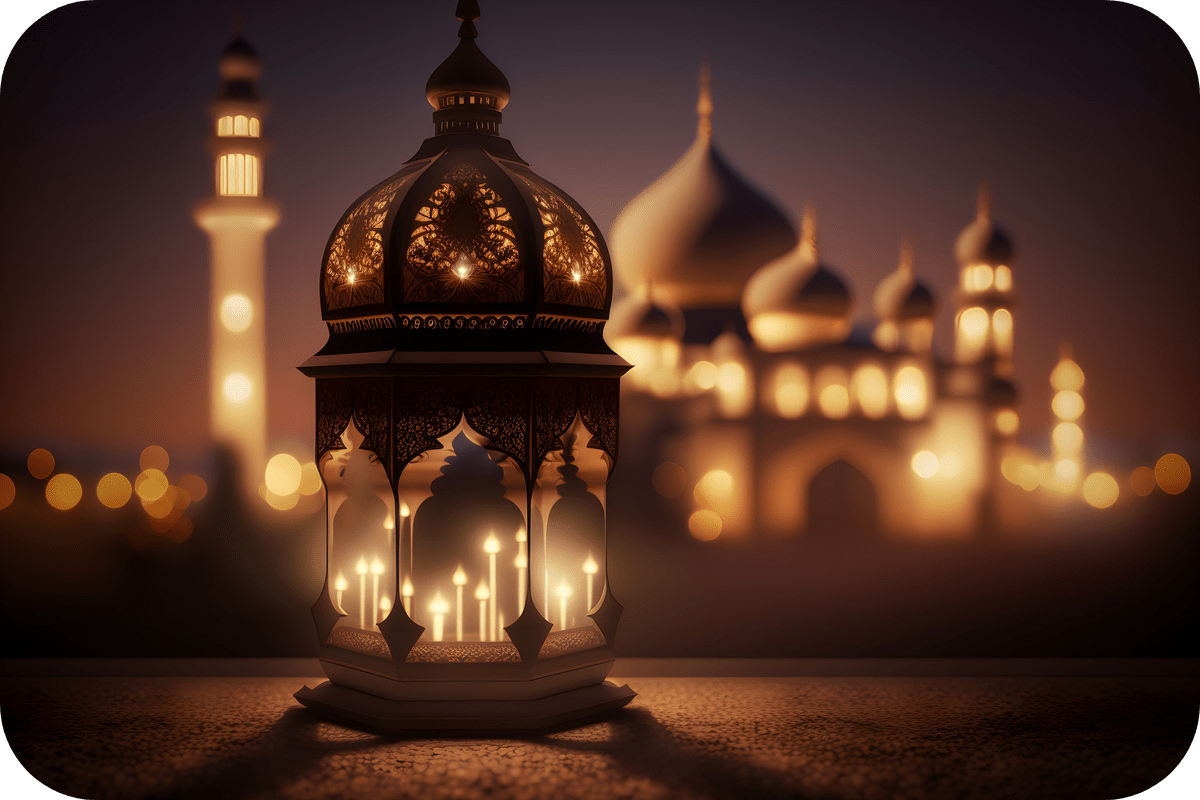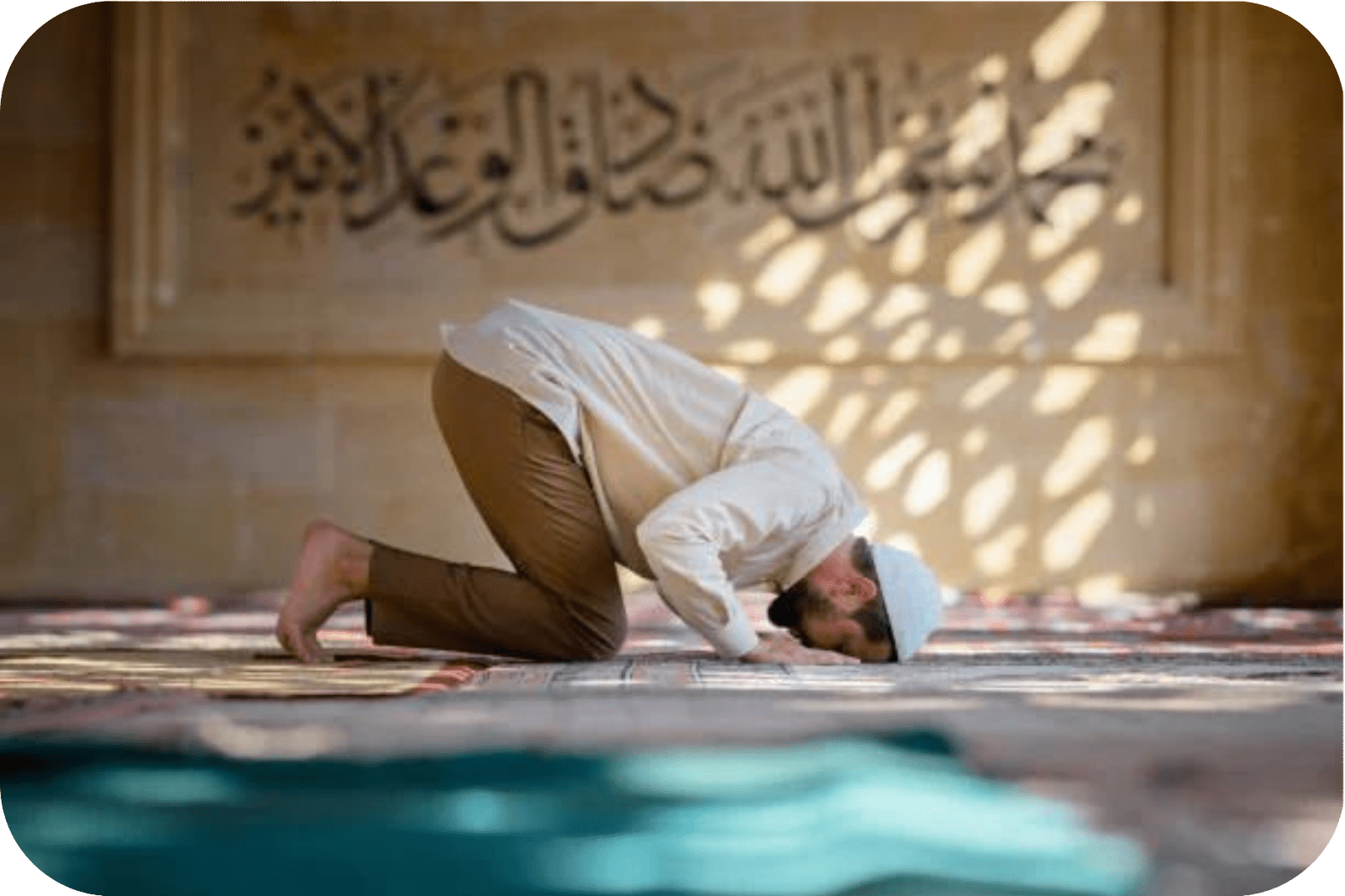When is Ramadan 2024?
When is Ramadan 2024?

Ramadan is a sacred month in the Islamic calendar and stands as a testament to spiritual devotion, self-reflection, and communal unity for Muslims worldwide, deeply rooted in the teachings of Islam, Ramadan serves as a conduit for believers to deepen their relationship with the divine, fostering empathy, gratitude, and humility.
What is Ramadan?
Ramadan is the ninth month of the Islamic lunar calendar. It is a time when Muslims observe a period of fasting from dawn (suhoor) until sunset (iftar) each day.
Fasting in Ramadan isn't just about abstaining from food and drink; it's a spiritual practice that encourages self-discipline and mindfulness. Muslims fast not only by refraining from eating and drinking but also by avoiding certain desires and behaviours.
The Quran emphasises the significance of fasting during Ramadan, stating:
“O you who have believed, decreed upon you is fasting as it was decreed upon those before you that you may become righteous.”
(Surah AL-Baqarah, verse 183)
When is Ramadan 2024?
This year, Ramadan is expected to begin on the evening of Sunday, March 10, 2024, and conclude on April 8, 2024, spanning a duration of 30 days. However, it's crucial to understand that the exact beginning and ending times of the month of Ramadan are based on the sighting of the first crescent Moon on the last night of the eighth month (Sha’ban). Ramadan is said to begin upon the first observance of the crescent Moon. Because of this, start and end dates are not set in stone and may vary by a day.
Why does the date vary each year?
The fluctuation in the dates of Ramadan is rooted in the Islamic lunar calendar, distinct from the fixed nature of the Gregorian solar calendar. Which refers to the conventional calendar system widely used in the world today, and operates as a solar calendar based on the Earth's orbit around the sun. It consists of 365 days in a common year and 366 days in a leap year.
1. Lunar vs. Solar Calendar
Ramadan follows the Islamic lunar calendar, consisting of 12 lunar months, totaling around 354 or 355 days per year. This differs from the Gregorian solar calendar, causing a yearly shift in the commencement of Islamic months relative to the fixed Gregorian dates.
2. Non-Interpolation and Moon Observation
Unlike the Gregorian calendar, which incorporates leap years and days, the Islamic calendar doesn't include such adjustments. It relies solely on the sighting of the crescent moon to initiate each month, including Ramadan. This reliance on moon observation leads to the variability in Ramadan's commencement.
3. Geographical Influence
Global geographical diversity significantly impacts moon sightings, resulting in regional differences at the start of Ramadan. Local moon sighting practices, weather conditions, and geographic locations contribute to slight discrepancies in the beginning and end dates of Ramadan across diverse regions.
Why do Muslims fast during Ramadan?
Fasting during Ramadan holds profound significance for Muslims, extending beyond its obligatory nature as one of the five pillars on Islam.
Firstly, it is viewed as a means of practising self-discipline and self-control. By voluntarily refraining from physical needs and desires, individuals aim to strengthen their willpower and develop a greater sense of empathy towards those less fortunate. Fasting also serves as a reminder of the blessings in life, instilling gratitude for the sustenance and privileges enjoyed.
Furthermore, fasting serves as a spiritual exercise, allowing Muslims to achieve a heightened state of consciousness and connection with Allah. It purifies the soul, rejuvenates the mind, and promotes self-reflection. Muslims seize the opportunity to seek forgiveness for past wrongdoings, engage in increased worship, and seek guidance for leading a righteous life.
Prophet Muhammad (peace be upon him) highlighted the spiritual significance of fasting. One notable hadith mentions:
“Whoever fasted the month of Ramadan out of sincere Faith (i.e. belief) and hoping for a reward from Allah, then all his past sins will be forgiven, and whoever stood for the prayers in the night of Qadr out of sincere Faith and hoping for a reward from Allah, then all his previous sins will be forgiven .”
(Sahih al-Bukhari, 38)
What is Eid al-Fitr?
Eid al-Fitr, also known as the Festival of Breaking the Fast, marks the end of Ramadan. It serves as a joyous occasion for Muslims to come together in celebration, expressing gratitude for successfully completing the month of fasting. The festivities include communal prayers, feasting, exchanging gifts, and acts of charity.
Eid al-Fitr begins with a communal prayer, performed in congregation at mosques or outdoor prayer grounds. Muslims dress in their finest attire and embrace the spirit of unity and togetherness. Families and friends gather to share festive meals, which often feature traditional delicacies and sweets. Additionally, it is customary to extend acts of charity during Eid al-Fitr, ensuring that the less fortunate can also partake in the festivities.
Conclusion
It becomes apparent that Ramadan extends beyond a mere physical act of abstaining from food and drink. It embodies a multifaceted spiritual journey, fostering self-discipline, empathy, and a profound connection with Allah.
As we eagerly anticipate the arrival of Ramadan 2024, it is a time to infuse our lives with devotion, compassion, and a renewed sense of purpose. May this Ramadan be a source of spiritual growth, closeness to God, and unity among all believers!
Buying on Riwaya
At Riwaya we aim to support and enhance your Ramadan experience by providing a diverse array of Islamic products and gifts that resonate with the essence of this holy month.
We invite you to explore our platform and discover a curated collection of Islamic products that not only align with your values and beliefs but also perfect for embracing the spirit of Ramadan.
Selling on Riwaya
As Ramadan approaches, it's time to share your unique Islamic products with a global audience. Join Riwaya as a seller and be part of a platform that celebrates the spirit and traditions of Ramadan.
At Riwaya, we provide a space where your products can resonate with individuals seeking meaningful and authentic experiences during Ramadan. Your contributions have the power to connect communities, fostering a sense of shared heritage and values.
Our seller-friendly platform ensures seamless showcasing of your products, expanding your reach and facilitating secure transactions. Become a seller with Riwaya today and let your products find their perfect audience effortlessly and contribute to joyous and meaningful Ramadan celebrations.
FAQs
Q1: When is Ramadan 2024?
Ramadan in 2024 is projected to begin on the evening of March 10, 2024, and conclude on the evening of April 8, 2024, based on the Islamic lunar calendar. However, the exact dates may vary depending on the sighting of the moon.
Q2: Why does the date of Ramadan change every year?
Ramadan follows the Islamic lunar calendar, which is based on the phases of the moon. It is approximately 10-12 days shorter than the Gregorian calendar. As a result, Ramadan shifts earlier each year in the Gregorian calendar.
Q3: How is the start of Ramadan determined?
The start of Ramadan is determined by the sighting of the new moon (hilal). Islamic communities may rely on moon sighting committees or astronomical calculations to determine the beginning of the lunar month of Ramadan.
Q4: What happens during Ramadan?
Ramadan is the ninth month of the Islamic lunar calendar and is observed by Muslims worldwide as a month of fasting (Sawm), prayer, reflection, and community. Muslims abstain from eating, drinking, smoking, and engaging in sinful behavior from dawn (suhoor) until sunset (iftar).
Q5: Is fasting during Ramadan obligatory for all Muslims?
Fasting during Ramadan is one of the Five Pillars of Islam and is obligatory for adult Muslims, with certain exceptions such as illness, pregnancy, menstruation, travel, or other valid reasons that exempt individuals from fasting.
Q6: How do Muslims break their fast during Ramadan?
Muslims break their fast at sunset with a meal called iftar. Traditionally, iftar starts with eating dates and drinking water, followed by a larger meal that typically includes a variety of foods and drinks.
Q7: What is Laylat al-Qadr?
Laylat al-Qadr, also known as the Night of Decree or Power, is considered the holiest night during Ramadan. It is believed to occur in the last ten nights of Ramadan and is a night of immense blessings, forgiveness, and mercy.
Q8: How long does Ramadan last?
Ramadan typically lasts for 29 or 30 days. The exact duration is determined by the sighting of the crescent moon, marking the beginning and end of the month.
Q9: What are the benefits of fasting during Ramadan?
Fasting during Ramadan holds spiritual, moral, and health benefits. It fosters self-discipline, empathy for the less fortunate, spiritual reflection, and a sense of community among Muslims.
Q10: Are there any special prayers or activities during Ramadan?
Aside from fasting, Muslims engage in increased prayers, recitation of the Quran, charitable activities (Zakat), and attending special nightly prayers known as Taraweeh in mosques.
Q11: How to sell to Muslims in Ramadan?
Riwaya provides a platform for sellers allowing them to connect with a global audience seeking meaningful products during this special time. Sellers can thrive by aligning offerings with the values and traditions of Ramadan.



